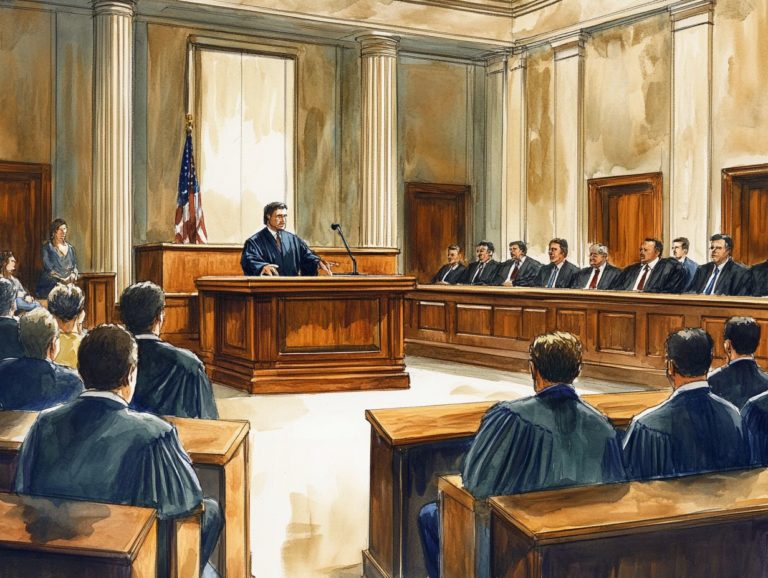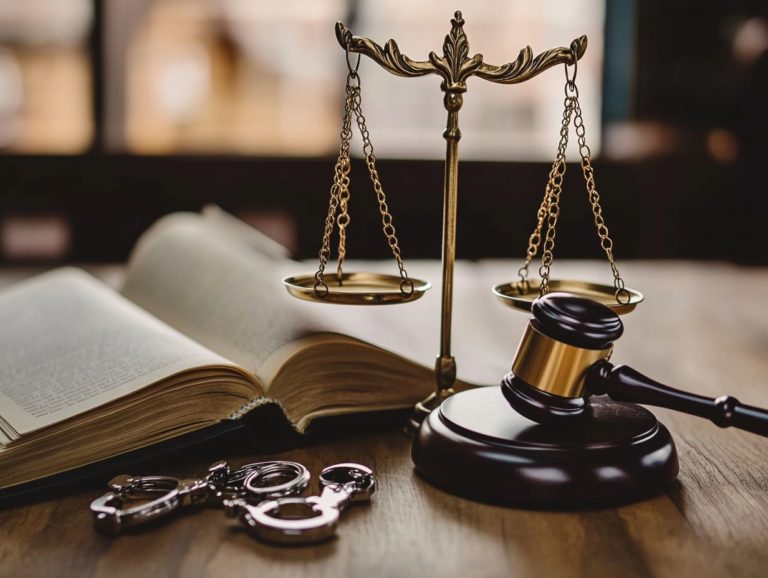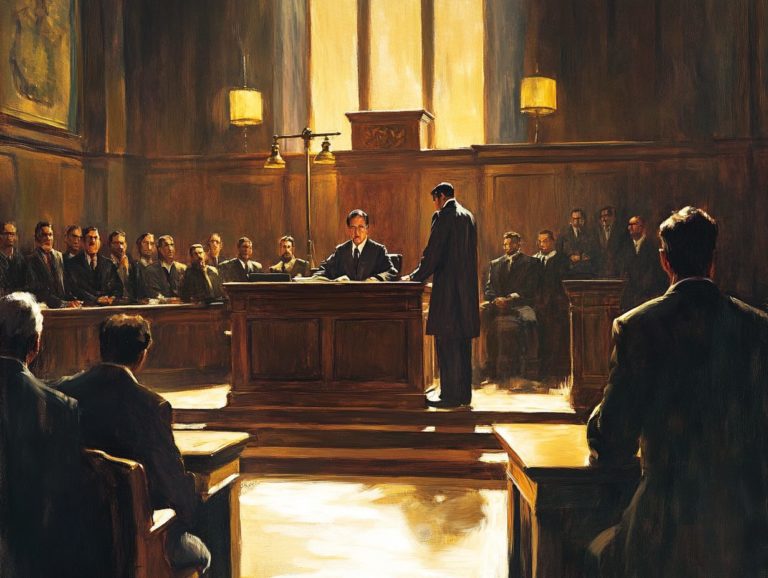Are Criminal Records Public Information?
Criminal records can profoundly affect your life, shaping everything from job prospects to how others perceive you.
This article explains what criminal records are, the various types that exist, and the laws that dictate public access to this information. You ll discover how to obtain these records, understand the limitations on access, and grasp the potential implications for both your personal and professional life.
We ll also explore ways to protect your record, including options for expungement (removing a record from public view) and sealing (keeping it confidential). Whether you re curious about your own record or someone else s, this guide provides essential insights into the intricate landscape of criminal records.
Contents
Key Takeaways:
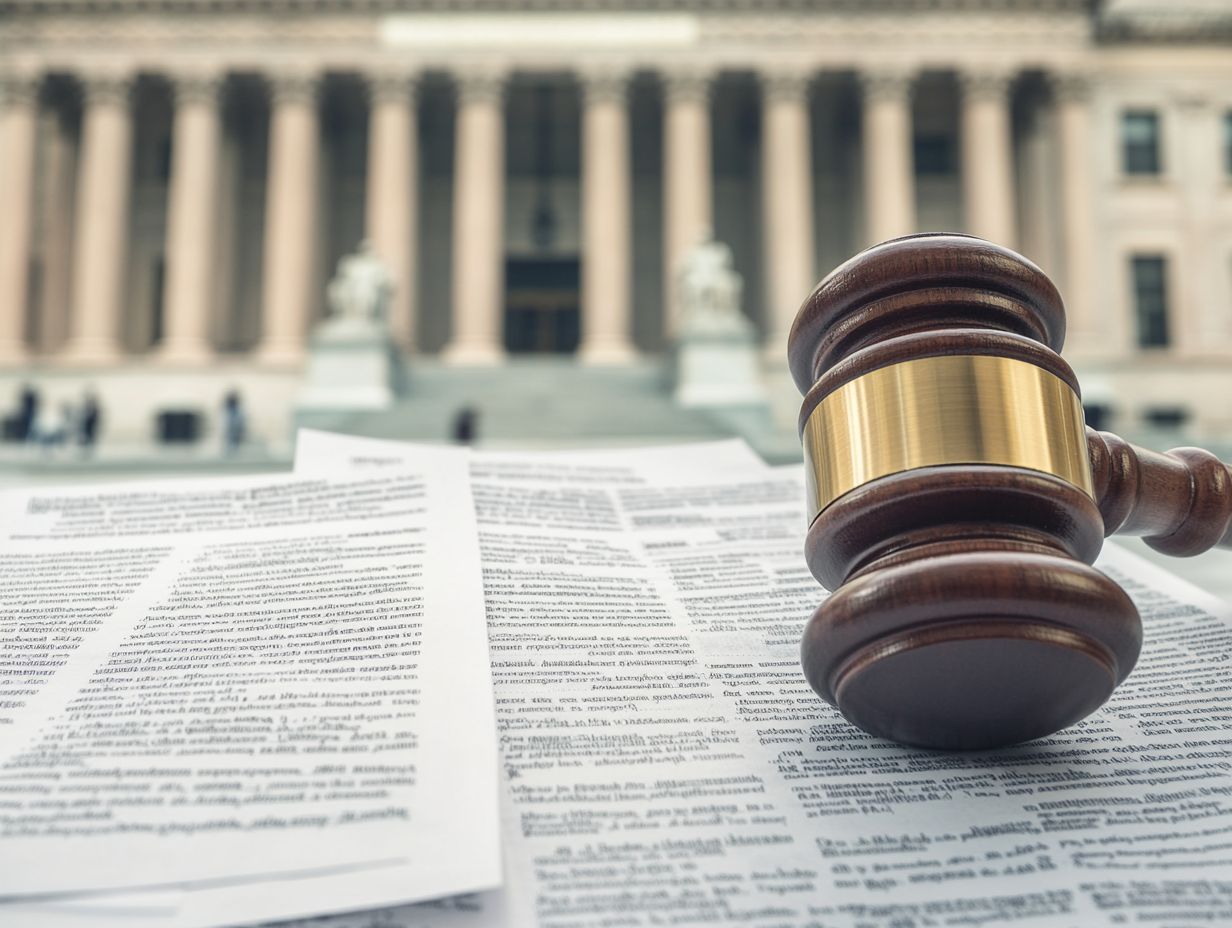
Criminal records are official documents containing information about a person’s past criminal convictions or charges. Access to these records is governed by laws that vary by state and jurisdiction. Public access to criminal records can significantly impact a person’s employment and personal life. However, there are ways to protect and potentially clear your record. Protect your future! Understanding your rights regarding criminal records is crucial.
Understanding Criminal Records
Understanding criminal records is crucial for navigating the complex legal and social frameworks. These records provide a comprehensive account of an individual’s interactions with law enforcement, including arrests, convictions, and other legal actions.
Since the time of the American Revolution, the prevailing principle surrounding criminal records has been the necessity to keep certain information confidential rather than publicly disclosed, particularly in sensitive cases. This policy has existed long before clear laws delineated public access to such information.
Definition and Types of Criminal Records
Criminal records can be categorized into various types, including arrest records, conviction records, and juvenile records. Each type serves a distinct purpose in law enforcement and background checks, reflecting your history with the legal system.
Understanding these categories is crucial for grasping the broader implications for your life. Arrest records detail occasions when you were apprehended, regardless of a conviction, marking those initial encounters with law enforcement. Conviction records document formal court outcomes, indicating the legal determination of guilt.
Juvenile records pertain to offenses committed by minors and are often sealed in many jurisdictions. They usually carry different repercussions, given the focus on rehabilitation over punishment.
Together, these records shape how society perceives you and can significantly influence opportunities for employment, housing, and social standing. This underscores the complex interplay between personal history and public perception.
Public Access to Criminal Records
Public access to criminal records is shaped by a complex web of laws and regulations, which can differ significantly between jurisdictions.
The Public Records Act stipulates that specific information is available for disclosure, facilitating background checks for individuals and agencies.
However, it s essential to note that exceptions exist regarding what must or can be revealed, especially concerning sensitive data.
Laws and Regulations on Public Records
The laws governing public records determine what information you can access and under which circumstances. Criminal history records are protected by civil rights laws designed to shield individuals from unnecessary exposure and discrimination based on their past.
These laws strive to maintain a careful balance between your right to know and an individual’s right to privacy. While some jurisdictions provide broad access to these records, others enforce strict limitations, underscoring the necessity for careful review prior to disclosure.
Different statutes may restrict access to specific types of criminal history, such as juvenile records or expunged offenses, illuminating the ongoing debate between transparency and the potential harm of revealing someone’s past. Grasping these nuances is essential for both those seeking information and individuals wishing to protect their civil rights.
How to Access Criminal Records
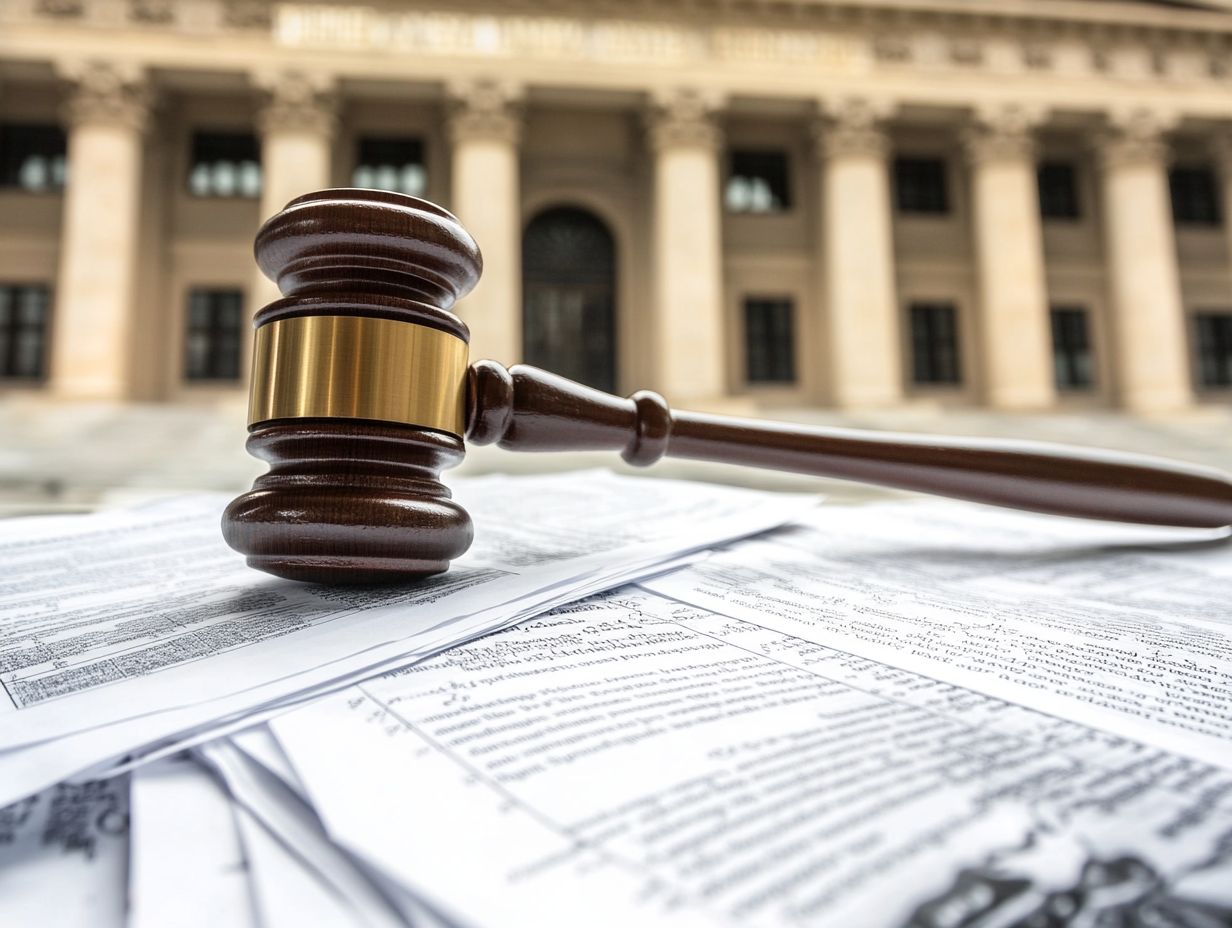
Accessing criminal records involves navigating a range of methods and resources available to both individuals and law enforcement agencies.
Depending on your jurisdiction, organizations like the California Department of Justice outline specific protocols for obtaining criminal history records through official requests. It’s crucial to understand these processes to avoid pitfalls and ensure you get the information you need quickly!
Methods and Resources for Obtaining Records
Obtaining criminal records can be achieved through several methods. Each method offers its own advantages.
You can opt for online requests, visit the Nebraska State Patrol or the Texas Department of Public Safety in person, or utilize third-party services for background checks.
Each method comes with specific procedures. For example, online requests usually involve filling out a form and paying a fee, which may differ depending on the state. If you choose to visit in person, be prepared to provide identification and complete additional paperwork.
Third-party services can streamline the process by gathering information from different sources. However, it’s crucial to select reputable providers to guarantee reliability. By familiarizing yourself with these different channels and resources, you can navigate the landscape of obtaining criminal records with greater ease and confidence.
Limitations on Public Access
Limitations on public access to criminal records serve a critical function: they protect sensitive information and defend the privacy rights of individuals.
Certain confidential details must remain undisclosed to safeguard personal integrity. However, exceptions exist, as established in laws like the Megan’s Law, which dictate how information related to sex offenders is managed.
Confidential Information and Exceptions
Confidential information within criminal records comprises sensitive data that must not be disclosed to the public, except where the law clearly dictates otherwise.
A Petition for Writ of Habeas Corpus can sometimes result in the unsealing of certain records, allowing limited disclosure under judicial oversight. Other circumstances may also require the release of confidential data, such as law enforcement inquiries or court-ordered inspections.
Details like juvenile offenses, mental health information, and specific financial records are all protected under this confidentiality umbrella. However, exceptions can arise when the information is crucial for a legal defense or must be disclosed during a trial to ensure a fair process.
Understanding these details is key to navigating the complicated legal world of criminal records.
Implications of Public Criminal Records
The implications of public criminal records extend well beyond the courtroom, influencing numerous facets of your life, from employment prospects to personal relationships.
The accessibility and potential misuse of these records by data brokers present serious concerns regarding privacy and discrimination. It’s essential to be aware of how such information can impact your daily interactions and opportunities.
Effects on Employment and Personal Life
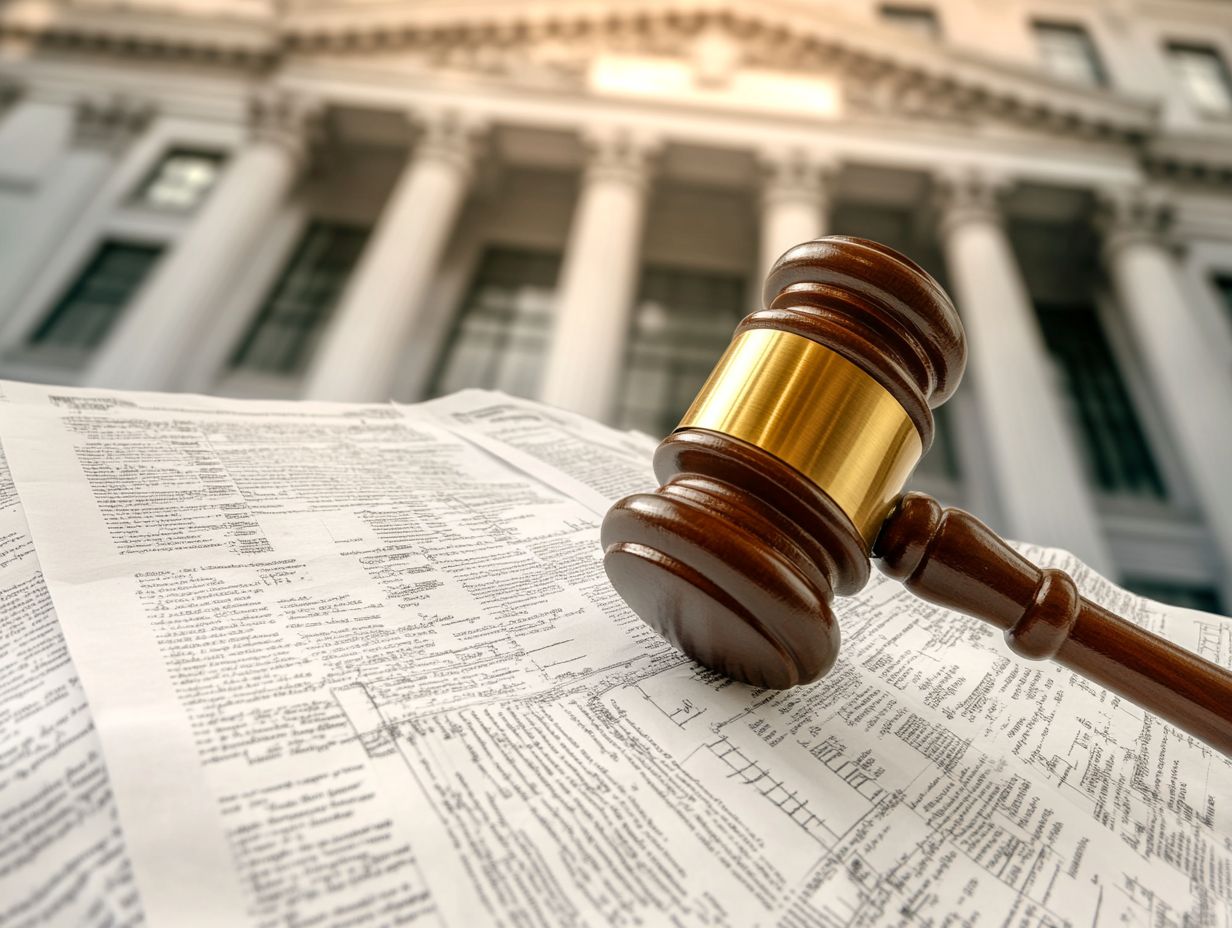
The impact of a public criminal record can profoundly affect your employment opportunities and personal life. Background checks often unearth these records, leading to stigma and discrimination that complicate your reintegration into society.
This stigma can appear in various ways, from outright rejections in hiring processes to more insidious biases that can disrupt workplace dynamics.
Your personal relationships may also bear the weight of societal perceptions, creating an atmosphere of mistrust and alienation among friends and family.
As you navigate the complex terrain of interviews and social situations, the shadow of your past can loom large, shaping not only your self-image but also how others view your character and potential.
Breaking through this barrier requires personal resilience and a collective shift in societal attitudes toward individuals with criminal histories.
Protect Your Criminal Record
Protect your criminal record from public access by utilizing legal mechanisms like expungement and record sealing.
These processes let you eliminate or limit access to specific criminal history information. This provides a fresh start and minimizes the impact on your life.
Expungement and Sealing of Records
Expungement and sealing of records are crucial legal avenues for protecting your criminal history from public scrutiny. Your eligibility often depends on the nature of the offense and whether you’ve completed a rehabilitation period.
To start this process, gather specific documentation, such as court records, proof of rehabilitation, and any relevant affidavits. It’s vital to examine the laws in your jurisdiction since criteria can vary between misdemeanors and felonies.
Once you’ve submitted the necessary documentation, the legal system will assess your request, which may include a hearing.
Successful expungement or sealing of your records can significantly enhance your prospects in employment and housing. This gives you a chance to start anew without the burden of past mistakes clouding your public record.
Frequently Asked Questions
Are Criminal Records Public Information?
Yes, criminal records are usually considered public information.
What is a Criminal Record?
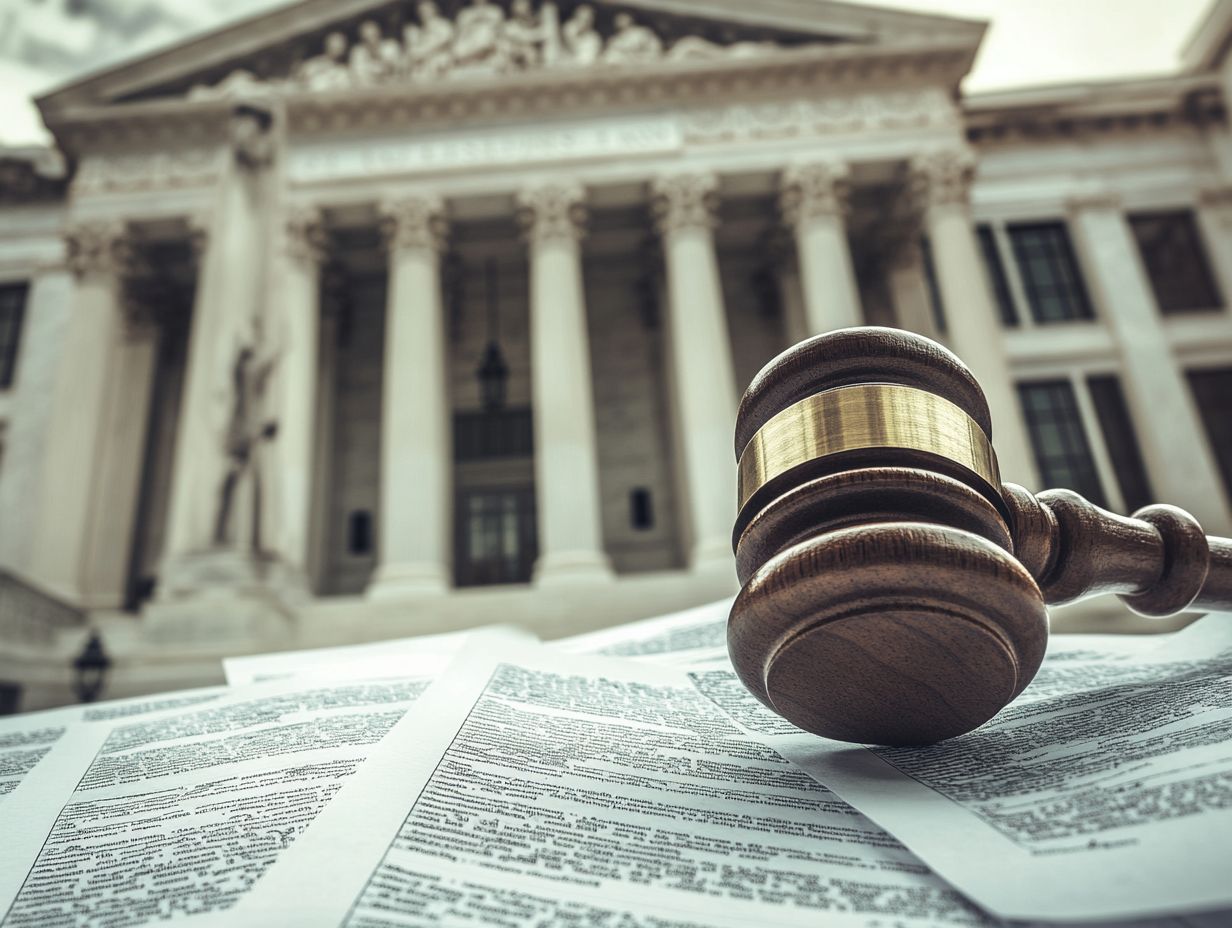
A criminal record includes any documented criminal activity, including arrests, convictions, and court proceedings.
Can Anyone Access My Criminal Record?
In general, anyone can request to view a criminal record. However, the process and extent of information that can be accessed may vary depending on the jurisdiction and purpose of the request.
Are There Restrictions on Accessing Criminal Records?
Yes, there are some restrictions on who can access criminal records. Certain sensitive information may be redacted or withheld from public view. Additionally, some states may have specific limitations on who can request and view criminal records.
How Can I Access Someone Else’s Criminal Record?
You can access someone else’s criminal record by requesting it from the appropriate government agency, such as a local courthouse or state police department. You may need to provide specific identifying information and/or pay a fee for the request.
Can I Have My Criminal Record Expunged or Sealed?
Depending on the laws and regulations in your jurisdiction, you may be able to have your criminal record expunged or sealed in certain circumstances. This process typically involves petitioning the court and meeting specific eligibility requirements.

